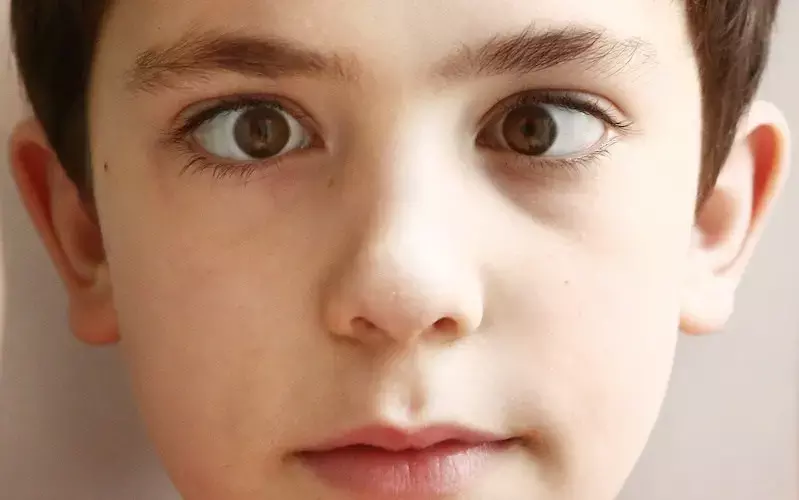- Home
- Medical news & Guidelines
- Anesthesiology
- Cardiology and CTVS
- Critical Care
- Dentistry
- Dermatology
- Diabetes and Endocrinology
- ENT
- Gastroenterology
- Medicine
- Nephrology
- Neurology
- Obstretics-Gynaecology
- Oncology
- Ophthalmology
- Orthopaedics
- Pediatrics-Neonatology
- Psychiatry
- Pulmonology
- Radiology
- Surgery
- Urology
- Laboratory Medicine
- Diet
- Nursing
- Paramedical
- Physiotherapy
- Health news
- Fact Check
- Bone Health Fact Check
- Brain Health Fact Check
- Cancer Related Fact Check
- Child Care Fact Check
- Dental and oral health fact check
- Diabetes and metabolic health fact check
- Diet and Nutrition Fact Check
- Eye and ENT Care Fact Check
- Fitness fact check
- Gut health fact check
- Heart health fact check
- Kidney health fact check
- Medical education fact check
- Men's health fact check
- Respiratory fact check
- Skin and hair care fact check
- Vaccine and Immunization fact check
- Women's health fact check
- AYUSH
- State News
- Andaman and Nicobar Islands
- Andhra Pradesh
- Arunachal Pradesh
- Assam
- Bihar
- Chandigarh
- Chattisgarh
- Dadra and Nagar Haveli
- Daman and Diu
- Delhi
- Goa
- Gujarat
- Haryana
- Himachal Pradesh
- Jammu & Kashmir
- Jharkhand
- Karnataka
- Kerala
- Ladakh
- Lakshadweep
- Madhya Pradesh
- Maharashtra
- Manipur
- Meghalaya
- Mizoram
- Nagaland
- Odisha
- Puducherry
- Punjab
- Rajasthan
- Sikkim
- Tamil Nadu
- Telangana
- Tripura
- Uttar Pradesh
- Uttrakhand
- West Bengal
- Medical Education
- Industry
Patients with thyroid eye disease at increased reoperation risk after strabismus surgery: Study

California: A new study shows that after strabismus surgery, approximately one of every four patients with thyroid eye disease (TED) requires reoperation. The number of muscles operated on was the sole independent predictor of reoperation and time to first reoperation. The findings of this study were published in the American Journal of Ophthalmology on 27th November, 2021.
This study was conducted by BryceHwang and team with the objective to investigate risk factors for strabismus surgery reoperation in TED patients.
TED, also known as thyroid related orbitopathy, is a typical sign of Graves' disease (GD), a systemic inflammatory condition. The thyroid gland, pretibial skin, and orbit are all affected by this process. Ophthalmic symptoms occur in up to 50% of GD patients, and patients most typically appear in their third to fifth decade of life, with women being more commonly afflicted.
In this retrospective cohort study, an insurance claims database was utilized to identify individuals with TED who had at least one strabismus procedure between 2003 and 2019. The researchers kept track of which muscles were operated on, as well as the time and frequency of reoperations. To evaluate the relationships between time to reoperation and patient and main surgical variables, Cox regressions were utilized.
The key findings of this study were:
1. Reoperations were performed on 111 (24.8%) of the 448 patients who matched the inclusion criteria.
2. After their initial strabismus surgery, patients were followed for an average of 5.4 3.0 years. Reoperation rates were 29/120 (24.2%), 33/169 (19.5%), and 49/159 (30.8%) among patients whose initial surgery involved just horizontal muscles, only vertical muscles, or both horizontal and vertical muscles.
3. The number of muscles operated on initially was the sole independent predictor of reoperation for strabismus surgery (Odds Ratio [OR] 1.27).
4. The number of muscles operated on initially was similarly related to a shorter time to first reoperation (HR 1.22).
5. Time to reoperation was not related to age at first surgery, time between TED diagnosis and first strabismus surgery, gender, race, or use of adjustable sutures.
Reference:
Hwang, B., Heo, H., & Lambert, S. R. (2021). Risk factors for reoperation after strabismus surgery among patients with thyroid eye disease. American Journal of Ophthalmology. https://doi.org/10.1016/j.ajo.2021.11.022
Medical Dialogues consists of a team of passionate medical/scientific writers, led by doctors and healthcare researchers. Our team efforts to bring you updated and timely news about the important happenings of the medical and healthcare sector. Our editorial team can be reached at editorial@medicaldialogues.in.
Dr Kamal Kant Kohli-MBBS, DTCD- a chest specialist with more than 30 years of practice and a flair for writing clinical articles, Dr Kamal Kant Kohli joined Medical Dialogues as a Chief Editor of Medical News. Besides writing articles, as an editor, he proofreads and verifies all the medical content published on Medical Dialogues including those coming from journals, studies,medical conferences,guidelines etc. Email: drkohli@medicaldialogues.in. Contact no. 011-43720751


